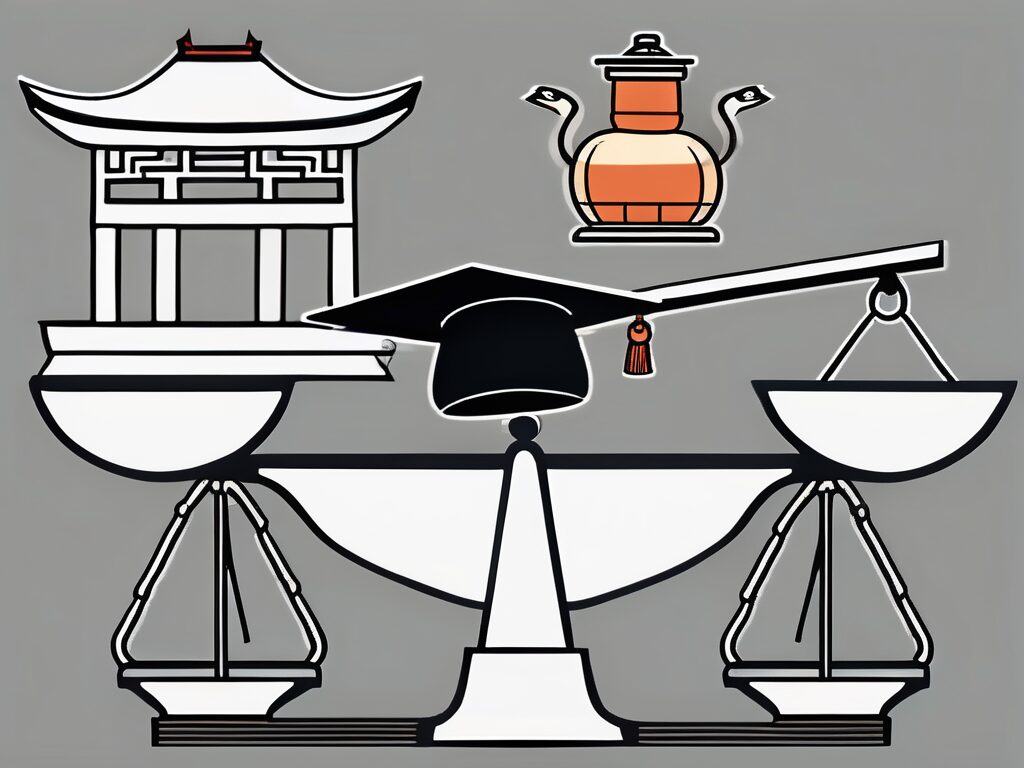Deciding to teach abroad is a significant decision that requires careful thought and consideration. For those with a Master’s in Education, the prospect of teaching in China can be particularly enticing. The country’s rich history, diverse culture, and rapidly growing economy make it an attractive destination for educators. However, is it really worth it? Let’s delve into the pros and cons of teaching in China with a Master’s in Education.
Pro 1: High Demand for Educators with Advanced Degrees
One of the main advantages of teaching in China with a Master’s in Education is the high demand for educators with advanced degrees. As China continues to globalise, there’s an increasing need for teachers who can provide a high-quality, international-standard education. This is particularly true in larger cities like Beijing and Shanghai, where international schools are plentiful.
Having a Master’s degree not only makes you more attractive to potential employers, but it can also lead to higher pay. In fact, teachers with a Master’s in Education often earn significantly more than those with just a Bachelor’s degree. This can make the prospect of teaching in China even more appealing.
Pro 2: Cultural Exchange and Personal Growth
Another benefit of teaching in China is the opportunity for cultural exchange and personal growth. Living and working in a foreign country can be an enriching experience that broadens your horizons and challenges your perceptions. You’ll have the chance to learn Mandarin, immerse yourself in Chinese culture, and make friends from all over the world.
Moreover, teaching in China can be a great way to gain international experience, which can be highly valuable in today’s globalised job market. It can also provide a unique perspective that can enrich your teaching practice and benefit your students.
Con 1: Language and Cultural Barriers
While living in China can be an exciting adventure, it can also present certain challenges. One of the main difficulties faced by foreign teachers is the language barrier. Although English is taught in schools, many people in China do not speak it fluently, especially outside of the major cities. This can make everyday tasks like shopping or navigating public transport more difficult.
Cultural differences can also pose a challenge. Chinese culture is vastly different from Western culture, and it can take some time to adjust. For example, the concept of “saving face” is very important in China, and it can influence the way people communicate and behave. Understanding these cultural nuances can be crucial for a successful teaching experience.
Con 2: Workload and Teaching Expectations
Another potential downside to teaching in China is the workload and teaching expectations. Chinese students are known for their strong work ethic, and this can translate into long hours and high expectations for teachers. Lesson planning, grading, and administrative tasks can take up a significant amount of time, leaving little room for leisure activities.
Furthermore, teaching methods in China can be quite different from those in the West. Rote learning is still common, and there can be a strong focus on exam results. This can be a challenge for teachers who are used to a more holistic approach to education.
Conclusion: Weighing Up the Pros and Cons
So, is teaching in China worth it with a Master’s in Education? The answer to that question will depend on your personal circumstances and career goals. If you’re drawn to the idea of living and working in a vibrant, fast-paced country with a high demand for educators, then teaching in China could be a great fit for you.
However, it’s important to be aware of the potential challenges. Language and cultural barriers, along with a heavy workload, can make the experience more difficult. It’s crucial to do your research, speak to other teachers who have worked in China, and weigh up the pros and cons before making a decision.
Ultimately, teaching in China can be a rewarding and enriching experience. It’s an opportunity to grow both personally and professionally, and to make a real difference in the lives of your students. But like any major life decision, it’s not one to be taken lightly.
Take Your Teaching Career to the Next Level with iQTS
If you’re considering the leap to teach in China and want to ensure you stand out in a competitive international education market, The IQTS at UWE can be your gateway to success. Our International Qualified Teacher Status (iQTS) Programme is designed to elevate your professional credentials, making you a prime candidate for top teaching positions. With the iQTS, you can overcome the common barriers of strict qualification requirements, as our programme has been proven to double your chances of getting interview callbacks. Not only will you be better qualified, but you’ll also enjoy a 45% increase in promotion rates and a significant salary boost, alleviating concerns about career progression. Plus, you’ll join a thriving community of educators, reducing feelings of isolation and increasing your professional connections. Gain a comprehensive understanding of global education systems and become 65% more adaptable in diverse teaching environments. With flexible online study options, you can balance your career advancement with your current work commitments. Make Your Next Step with the iQTS at UWE and transform your teaching journey today.

